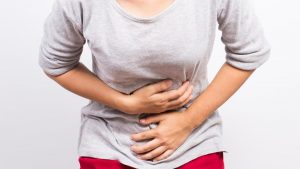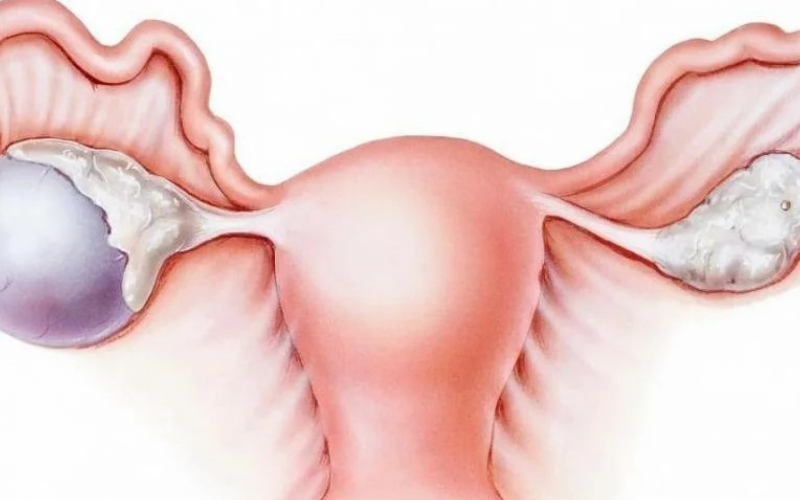Any infection, even a seemingly insignificant one, can turn into unpleasant consequences for a woman. It would seem that the causative agents of inflammatory processes have already been studied and doctors have learned to deal with them. Nevertheless, experts are sounding the alarm and urging patients to be more attentive to their health, since it is inflammation that leads to the formation of adhesions, and they can ultimately cause infertility.
Mysterious PID
The abbreviation PID stands for pelvic inflammatory disease. This is how doctors call a whole group of diseases of the female reproductive organs: inflammation of the uterus, fallopian (fallopian) tubes and ovaries. According to the Ministry of Health, more than half (50-65%) of gynecological diseases are associated with inflammation of the pelvic organs. Moreover, over the past 10 years (this is already WHO statistics), the number of women with such a diagnosis has increased by 1.5 times.
In most cases, inflammation is caused by an infection that usually begins in the vagina and then spreads to the cervix, fallopian tubes, and ovaries. That is why, first of all, young women who are sexually active with frequent changes of sexual partners fall into the risk group.
However, the sexual route is not the only one. Bacteria can enter the body during or after childbirth, abortion, or scraping. Also, the cause of infection can be an intrauterine contraceptive “spiral”. Thus, another risk factor for the development of the inflammatory process is any gynecological intervention and manipulation.
Symptoms and Treatment
The inflammatory process in the pelvic organs can be asymptomatic, or it can be felt by pain in the lower abdomen and pelvic pain, discomfort during intercourse, urination and defecation. Should alert vaginal discharge with an unpleasant odor, color and intensity, as well as menstrual irregularities. In addition, PID is characterized by general weakness, fever, fatigue, and headache.
With complex forms of inflammation, hospitalization is required, but most often the treatment is carried out on an outpatient basis, and if a woman strictly follows all the doctor’s prescriptions, it is quite successful. Treatment of POMT is aimed primarily at eliminating the focus of inflammation – infection. Antibiotics are selected taking into account the pathogen. It is important, even with a weakening of symptoms, to complete the course of antibiotic therapy in order to avoid relapses and the transition of inflammation to a chronic form.
Unfortunately, inflammation is dangerous not only in itself, but also by those changes that occur in the tissues and which can cause problems with conception later, namely adhesions. And here only antibiotics are indispensable.
Spikes – protection with a minus sign
In whatever form the inflammation passes, the body immediately turns on a protective function, trying to prevent the spread of infection. How does this happen? Already on the third day from the onset of the disease, the inflamed areas of the peritoneum are covered with a special protein – fibrin, which “glues” adjacent tissues. This, on the one hand, limits the development of inflammation, and on the other, it becomes the basis for the formation of tight adhesions between organs – adhesions. During the month, when the inflammatory process has already been removed, the number and volume of adhesions still continues to increase, and it becomes more and more difficult to fight it. In this case, adhesions can make themselves felt with pain in the lower abdomen or do not appear at all for a long time. Often the only symptom of the presence of adhesions in the pelvic organs is the impossibility of pregnancy.
The fact is that the ovary sealed in fibrous tissue can no longer function normally. The patency of the fallopian tubes is impaired, and the egg does not reach the uterine cavity. The proliferation of connective tissue in the inner layer disrupts the normal functioning of the mucous membrane and makes implantation of the ovum impossible. This is how infertility develops in a woman. In addition, the overgrown connective tissue creates an obstacle for the penetration of drugs to the site of inflammation, reducing the effectiveness of antibacterial treatment.
Enzyme preparations are a necessary component of complex therapy
To avoid the formation of adhesions already at the onset of the inflammatory disease, in addition to antibiotics, therapy should include enzyme preparations. In 2005, a new enzyme bovhyaluronidase azoxymer appeared on the market.
Bovhyaluronidase azoxymer is a special enzyme that dissolves scar tissue not only blocks the formation of excess connective tissue, but also slows down the inflammatory process, helps prevent the appearance of adhesions in acute inflammation and surgical interventions, and also reduces their number in chronic inflammation. In addition, it increases the permeability of tissues to other drugs used in therapy, increasing the effectiveness of treatment.
No woman is immune from the risk of inflammatory diseases https://en.wikipedia.org/wiki/Inflammation#Disorders, but with proper treatment, you can avoid their consequences. Attention to your body – the general condition, symptoms, prompt access to a doctor and diligent adherence to all instructions allows you to solve the problem of adhesions before they arise.
